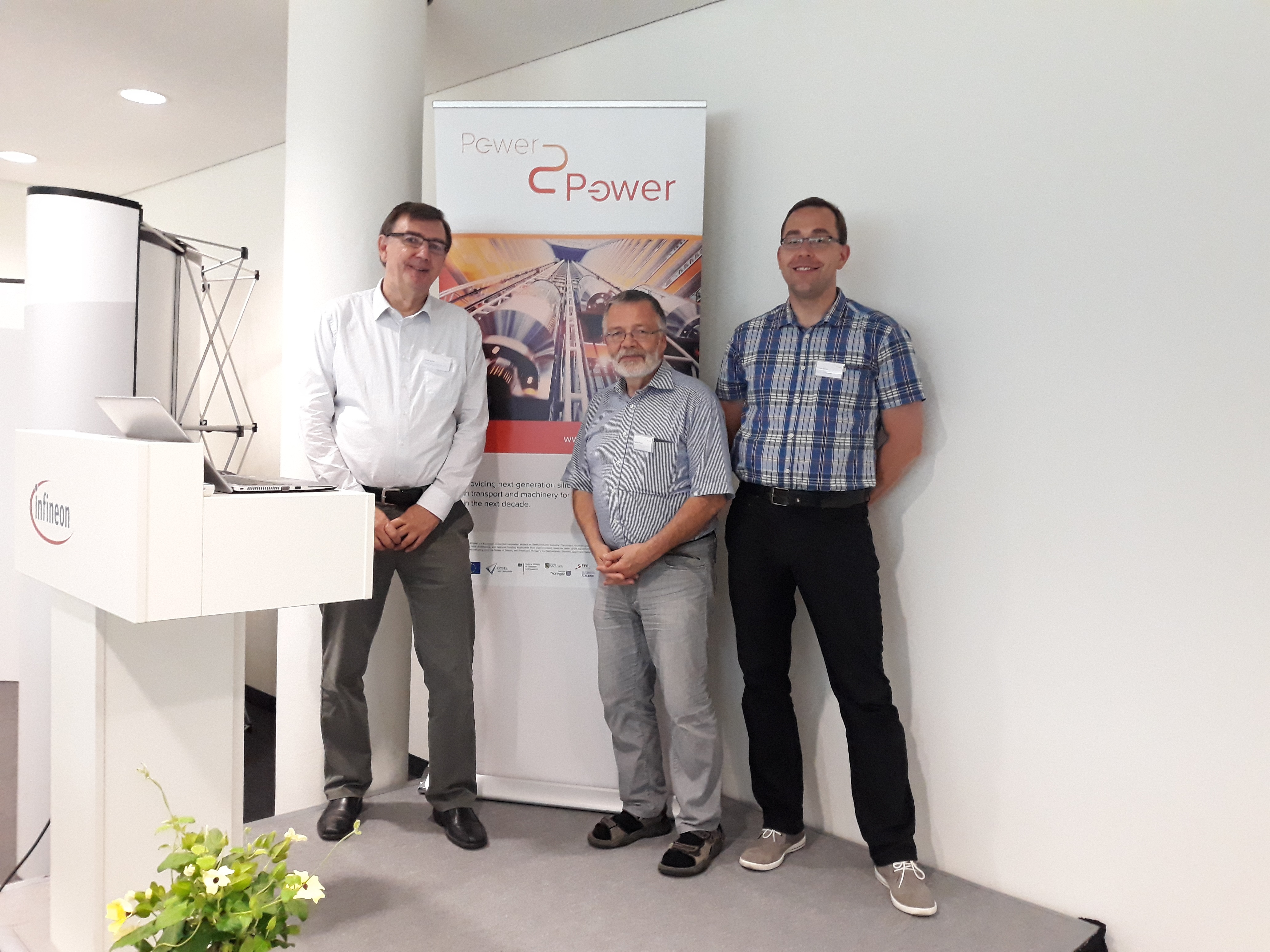Fraunhofer IMWS supports European research project Power2Power for more efficient power semiconductors
3 partners from eight countries are researching and developing innovative power semiconductors with more power density and energy efficiency: With this goal, the European research project Power2Power, which has a duration of three years and is coordinated by Infineon Technologies Dresden GmbH & Co. KG, has just begun. Part of the consortium, which includes universities, research institutes and companies, is the Fraunhofer Institute for Microstructure of Materials and Systems IMWS in Halle (Saale), which provides its expertise in the field of materials diagnostics and materials design.
![[object Object] Leistungselektronik Bauteil Elektroden](/en/presse/pressemitteilungen/power-electronics-potting-materials-material-design/jcr:content/fixedContent/pressArticleParsys/textwithinlinedimage/imageComponent1/image.img.jpg/1560763022421/170619-HybridPACK2-opened.jpg)

Power semiconductors are used in wind turbines, electric vehicles or household appliances and are needed at all stages of energy conversion: Generation, transmission and use. More efficient semiconductors are contributing significantly to reducing carbon dioxide emissions despite the growing global demand for energy, making it a key technology for a sustainable energy supply. Innovations in this area can further improve the competitiveness of the European microelectronics industry, particularly in semiconductor production.
“Collaboration across different levels of the supply chain is a basis for the success of the European microelectronics industry,” said Dr. Reinhard Ploss, CEO of Infineon Technologies AG. “We are also pursuing this approach in the Power2Power cooperation project. In collaboration with our partners, we will be working on new power semiconductors and system architectures with higher energy efficiency. Our goal is: more power from less energy.”
With its expertise in polymer materials and materials design, Fraunhofer IMWS will support the development of improved casting materials for power electronics. Among other things, test equipment specially developed for these questions will be used at the Fraunhofer IWMS to determine the diffusion and permeation parameters of corrosive gases or gas mixtures in polymer materials.
The volume of the Power2Power project will be approximately €74 million. Two thirds of this will be allotted to the German partners. The European Union is funding the cooperation within the scope of the ECSEL (Electronic Components and Systems for European Leadership) program. Funding from Germany will be provided by the Federal Ministry of Education and Research and from the two states of Saxony and Thuringia. The partners from the other seven countries are also being sponsored by their national authorities.
The European semiconductor industry employs several hundred thousand people. But in its technology-related user industry, it has a much greater leverage effect. “An important focus is the booming market for power electronics,” says Bert De Colvenaer, Executive Director ECSEL Joint Undertaking. “With regard to the global competition – especially from Asia – Power2Power will help increase the manufacturing share of European companies on the world market and further strengthen its leading positions.”
On several supply chain levels, the Power2Power partners will develop pilot lines at German sites to produce innovative power electronics that are fit for the future. With strong partnerships and investments in innovation, the cooperation project will secure and create highly qualified jobs. Consequently, Power2Power is supporting the Federal Government's High-Tech Strategy 2025.